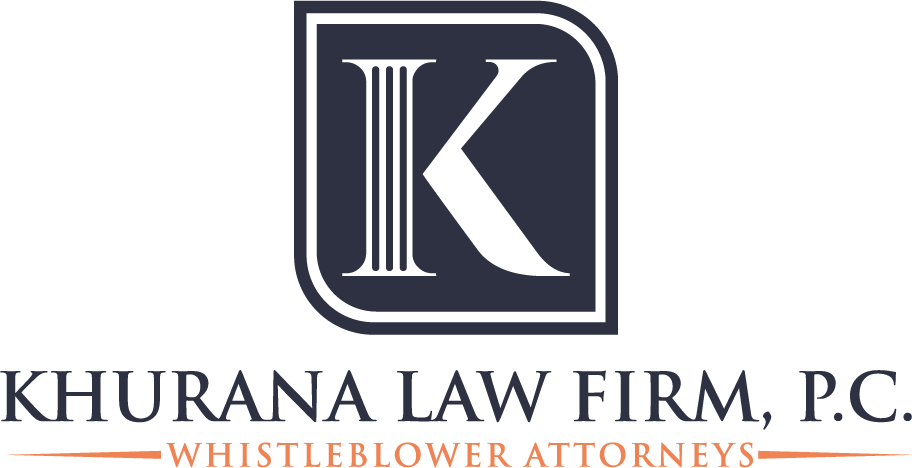Whistleblower Suit
Whistleblower suit one of the largest US health care providers, Sutter Health, has agreed to pay $90 million to settle allegations of violating the False Claims Act (FCA) resolving the 2015 whistleblower suit. California-based hospital operator was accused of knowingly submitting inaccurate information about their patients’ health status enrolled in Sutter Health’s contracted Medicare Advantage Plans stated the U.S. Department of Justice.
The settlement, which is believed to be the largest FCA case against a hospital system over Medicare Advantage, was made on August 30, 2021, and once again underlined the benefits of whistleblowing in the healthcare sector.
Yes, that’s correct. In October 2021, Sutter Health agreed to pay $90 million to settle a whistleblower suit that alleged the company engaged in fraudulent billing practices related to its Medicare Advantage plans. The settlement is the largest Medicare Advantage fraud settlement to date.
The lawsuit, which was filed under the False Claims Act by a former employee of Sutter Health, alleged that the company knowingly submitted false claims to Medicare for services that were not medically necessary or were not provided at all. The lawsuit also alleged that Sutter Health engaged in upcoding and other billing practices that resulted in overcharges to Medicare.
Under the terms of the settlement, Sutter Health admitted no wrongdoing but agreed to pay $90 million to resolve the allegations. The whistleblower who filed the lawsuit is eligible to receive a percentage of the recovered funds, which could be a substantial award given the size of the settlement.
The settlement underscores the importance of whistleblower suit in detecting and stopping fraudulent activities in the healthcare industry, particularly in the Medicare Advantage program. By holding healthcare providers accountable for their actions and ensuring that taxpayer dollars are spent appropriately, whistleblower suit play a critical role in protecting the integrity of the Medicare program and promoting transparency in the healthcare industry.
What Alleged Fraud did Sutter Health Commit?
The whistleblower suit was originally filed in 2015 by a former employee of Sutter Health. The case alleged that starting from 2010 Sutter Health and its medical practice foundation affiliates knowingly submitted unsupported diagnosis codes to its contracted Medicare Advantage Plans to increase its reimbursement for provided services.
Sutter Health’s contracted Medicare Advantage Plans received larger payments by making patients appear sicker than they actually were. Once aware of the unsupported codes, the healthcare service provider failed to take sufficient action which led to the system abuse.
Sutter Health, one of the largest hospital systems in Northern California, has been accused of committing multiple instances of healthcare fraud. The alleged fraud includes the following:
- Overcharging Medicare: Sutter Health has been accused of overcharging Medicare by improperly coding claims for certain services. For example, Sutter Health allegedly billed Medicare for higher-level emergency room visits when lower-level visits were appropriate.
- Upcoding: Sutter Health has been accused of upcoding, which involves billing for more expensive services than were actually provided. For example, Sutter Health allegedly billed for more expensive anesthesia services than were actually provided.
- Unbundling: Sutter Health has been accused of unbundling, which involves billing for each component of a service separately instead of as a bundled package. For example, Sutter Health allegedly billed for each step of a laboratory test separately instead of as a bundled package.
- Kickbacks: Sutter Health has been accused of providing kickbacks to physicians in exchange for referrals. For example, Sutter Health allegedly paid physicians excessive compensation in exchange for referrals to its hospitals.
These alleged fraudulent activities not only cost taxpayers billions of dollars each year but also put patients’ health and safety at risk. For example, unnecessary medical procedures or treatments can cause harm to patients, and fake or counterfeit drugs can be dangerous or even deadly.
To combat healthcare fraud, the federal government and states have implemented various measures, including the creation of anti-fraud units and the use of data analytics to identify and prevent fraudulent activities. Additionally, the government offers rewards to whistleblower suit who come forward with information about fraudulent activities, which can help to deter and prosecute those engaged in healthcare fraud.
Overall, the allegations against Sutter Health highlight the need for continued vigilance and action to protect patients and taxpayers from the harmful and costly effects of fraudulent activities in the healthcare industry.
Why is the Sutter Health Whistleblowing Case Important for the Medicare Program?
Whistleblowing is an essential tool for the government in going after misconduct and therefore protecting the public, especially when it comes to the Medicare program. Sutter Health’s case sets an important example of whistleblowers teaming up with lawyers and government officials to fight against fraud in the healthcare sector.
The “result sends a clear message that we will hold healthcare providers responsible if they knowingly provide or fail to correct information that is untruthful,” said the Justice Department’s Civil Division’s Deputy Assistant Attorney General Sarah Harrington.
In announcing the settlement, the Department of Justice representatives underlined their ongoing efforts to fight fraud within the Medicare Advantage program. In addition to the payment, Sutter Health signed a five-year corporate integrity agreement, which calls for a centralized risk assessment program. Under such a program the healthcare provider has to hire an outside organization to review its patient diagnostic data each year.
The Sutter Health whistleblowing case is important for the Medicare program because it highlights the potential for fraud and abuse in the healthcare industry and the importance of whistleblower suit in detecting and stopping such activities.
As one of the largest healthcare providers in Northern California, Sutter Health’s alleged fraudulent activities, such as overcharging Medicare, upcoding, unbundling, and providing kickbacks to physicians in exchange for referrals, could have significant financial consequences for the Medicare program and taxpayers.
The case also underscores the importance of the False Claims Act, which allows whistleblower suit to file lawsuits on behalf of the government and receive a percentage of any recovered funds. In the Sutter Health case, the whistleblower suit who filed the lawsuit is eligible to receive a percentage of any recovered funds, which can serve as a powerful incentive for individuals to come forward with information about fraudulent activities.
By holding healthcare providers accountable for their actions and ensuring that taxpayer dollars are spent appropriately, whistleblowers play a critical role in protecting the integrity of the Medicare program and promoting transparency in the healthcare industry.
Overall, the Sutter Health whistleblowing case serves as a reminder of the importance of diligent oversight and the critical role that whistleblower suit can play in ensuring that healthcare providers operate ethically and in compliance with applicable laws and regulations.
What Compensation does Sutter Health Case Whistleblower Get?
Often, the whistleblower is expected to receive 15% to 25% of the recovered funds if the government joins the case, or 25% to 30% of recovery if the government decides not to take on the case.
In the Sutter Health case, according to the media reports, the whistleblower suit is expected to get 15% to 30% of the settlement under the FCA, while the exact share is yet to be determined.
The Sutter Health whistleblower suit, Kathleen Ormsby, is eligible to receive a percentage of any recovered funds from the lawsuit. The lawsuit, which was filed under the False Claims Act, alleges that Sutter Health engaged in fraudulent billing practices that resulted in overcharges to Medicare.
Under the False Claims Act, whistleblower suit who file lawsuits on behalf of the government can receive between 15% and 30% of any recovered funds. In the case of Sutter Health, if the lawsuit is successful and the government recovers funds, Ormsby could receive a significant award for her role in uncovering the alleged fraud.
It’s important to note, however, that the amount of the award is ultimately up to the discretion of the court. Factors that may be considered when determining the award include the significance of the information provided by the whistleblower, the level of assistance provided to the government, and the extent to which the whistleblower faced retaliation or other negative consequences for coming forward.
Overall, the potential for significant financial awards under the False Claims Act can serve as a powerful incentive for whistleblowers to come forward with information about fraudulent activities in the healthcare industry, helping to protect patients and taxpayers from the harmful and costly effects of such activities.
At Khurana Law Firm, P.C., experienced Medicare whistleblower lawyers support the decision to come forward to report abuse and fraud in the Medicare Advantage program.
Contact us today for a free, confidential consultation at (888) 335-5107




